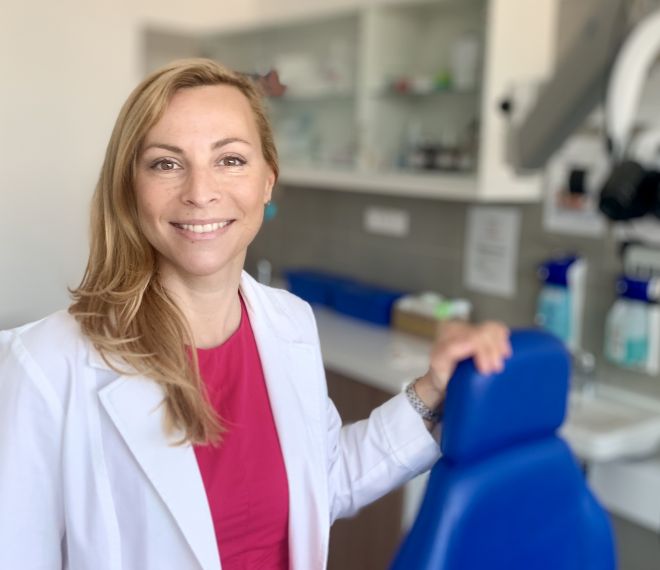Getting rid of allergies for good? Yes!

"Allergic rhinitis, i.e. hay fever, always receives special attention during the current pollen season, but it is still not enough," began Dr. Esther Tóth. "The first route most patients with respiratory allergy symptoms take is to the pharmacy, and they try to alleviate their symptoms with over-the-counter nasal drops. Although these drugs reduce or even eliminate nasal congestion, sneezing, and tearing, unfortunately they only provide a temporary solution. At the same time, there is a significant risk of habituation, these drugs can be used without risk for only a few days. It would be very important for those affected to visit an otolaryngologist at least once a year, before the season, who will examine the condition of the nasal mucosa and usually recommend combined therapy - with prescription drugs, without the risk of habituation."
What are the consequences of untreated respiratory allergies?
"After a while, the allergy can reach the lower respiratory tract and cause asthmatic symptoms. In the beginning, this only manifests itself as the patient coughs a little, croaks a little, maybe it's a little harder to breathe, but he hardly even notices it. - is the answer of the doctor. "It's probably just a passing dry cough, patients think, but it can also be the initial sign of developing asthma.
If someone lives with constant nasal congestion, they can slip into a state of irritability, fatigue, and headaches without noticing. This is no wonder, since the mucous membrane is constantly swollen, the sinuses are tense, this is transferred to the bone and periosteum, and a strange pressure and pain sensation arises in the head.
We can therefore say that allergies have a very bad effect on the quality of life in the long term.
And don't forget that allergies can also significantly impair the quality of your sleep. If someone lives with mouth breathing for a long time, he doesn't even notice that he doesn't actually use his nose. Not while sleeping, and not during the day."
Why is it important to use our nose?
"The macroparticles in the air are filtered by the nasal hairs and the ciliated mucous membrane of the nose so that they cannot reach the lungs. It also warms and humidifies the air. So if we don't use our nose properly, our lungs are unprotected, they get more strain and we become more prone to diseases. In addition, it is not good for the throat to have dry, dirty air constantly passing through it. Because of this, chronic inflammation of the pharynx and laryngitis can develop, the typical symptoms of which can be croaking, a feeling of dry throat, feeling of a lump, as if something is constantly there..., so if our nose is not in order, we should not give up, but should consult a specialist. Not to mention that sleeping with your mouth open almost certainly leads to snoring, but that's another topic..."
At what age is the development of allergies most common?
In the past, allergies mostly appeared at a young age, and then we said that you can grow out of it, that this disease is not typical for the elderly. Today, unfortunately, we see that the disease can occur and develop in the same way at an older age." continues Dr. Eszter Tóth.
Could environmental pollution be behind this?
"It is certain that smog impairs the protective ability of the mucous membrane, but the allergy itself is an abnormal response of the immune system to the allergen. This is not caused by smog itself, but by allergens and pollens circulating in the air. It's very interesting that we don't even suspect that a good part of the allergenic plants can cause problems: such are, for example, cedars, junipers, and some of our ornamental plants in our environment."
And we left perhaps the most important thing for the end: can we recover from allergies?
"The best news, which few people know yet, is that there is already a so-called cause therapy for hay fever!
Cause therapy goes beyond symptomatic treatment, as it restores the functioning of our pathologically reactive immune system. This can be achieved by re-administering the allergen to which the patient is allergic in the appropriate dose, this is the so-called sublingual immunotherapy.
The spray, which is used to administer the active agent under the tongue, can be obtained with a prescription at the pharmacy, and the treatment can be carried out at home - under the supervision of an otolaryngologist.
It is still worth starting the treatment now, since the ragweed season starts in August. We are talking about a long process, because the patient has to go through the treatment every season for 3 years. It is worth starting the therapy at least 3 weeks before the season, even before the symptoms appear, and continue throughout the season. It can be expected that from the 4th year onwards, in most cases, the patient will be able to stop taking all medications and will not even need symptomatic treatment.
Is this treatment only good for respiratory allergens or any?
There are already sprays on the market for many types of allergens, even fur allergies, and this therapy can also help asthmatics.
How much does this treatment cost?
All in all, it can be said that the price of symptomatic treatment is more than worth it if the disease can be overcome in 3 years, and there is no need to use medicines anymore. This is a huge step forward in terms of health and quality of life.
